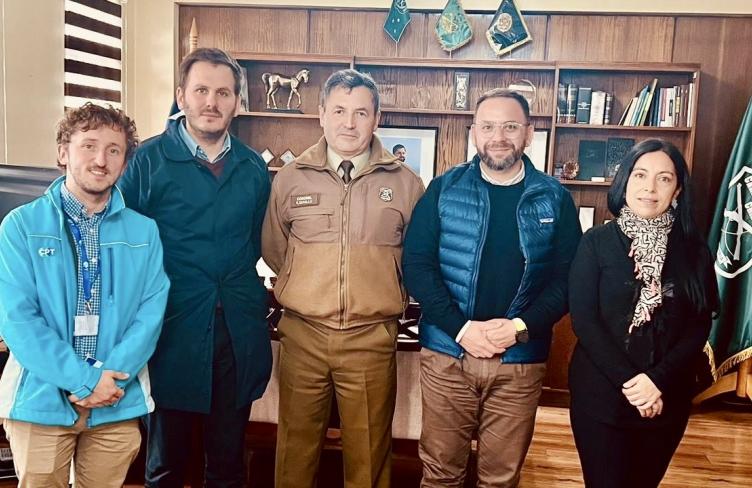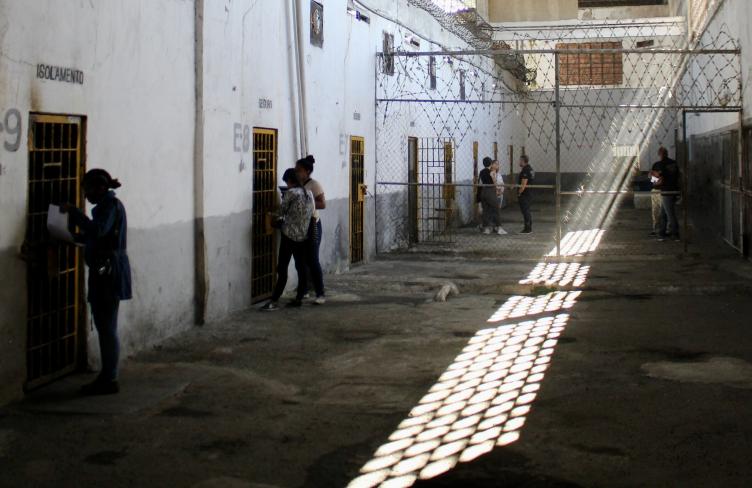
Latin America has a strong regional human rights protection system, comprising the Inter-American Commission on Human Rights, in Washington DC, and the Inter-American Court on Human Rights, in Costa Rica.
The region was a strong supporter of development and adoption of the Optional Protocol to the UN Convention against Torture (OPCAT), with Costa Rica playing a pivotal role. It filed the first draft in 1980 and, after filing the second draft in 1991, chaired the working group drafting the text. There are now 15 State Parties to the OPCAT, and 14 NPMs, among the region’s 21 countries.
From 2009 to 2018, the APT has supported OPCAT implementation in the Americas from our regional office in Panama. During this time, we supported State Parties with the designation and establishment of National Preventive Mechanisms (NPMs) and Local Preventive Mechanisms (LPMs).
We support NPMs in their work, through bilateral training and advice, as well as through regional workshops and exchanges. We also provide advice and support on torture prevention measures to other stakeholders in the region, such as the judiciary, public defenders' offices, and civil society organisations.
Regional activities
We have organised several regional workshops with NPMs, with a focus on supporting their work to monitor the first moments of detention. We have also published a series of documents on Safeguards to Prevent Torture in Police Custody in Latin America to identify the main risks in police detention, and best practices in implementing safeguards, such as access to a lawyer and access to information on rights, among others.
An important part of our work is to strengthen a gender perspective in criminal justice systems and to improve attention to groups in situations of vulnerability in detention. We coordinated a unique contribution of 12 NPMs and the APT to the Inter-American Court of Human Rights about the situation of LGBTI+ persons deprived of their liberty, for the drafting of the Advisory Opinion 29/2023 on differentiated approaches to deprivation of liberty published in 2023. We also raise awareness on the situation of indigenous women and on the situation of persons of Afro descendent within the criminal justice system.
Through our Anti-torture Legislation Overview, we contributed to the first regional snapshot of how Latin American countries legislate against torture.
We also supported the Network of National Human Rights Institutions (RINDHCA) in the creation of their working group on torture prevention. We have collaborated with the Ibero-American Ombudsman Federation (FIO) and the German Development Cooperation to contribute to the effective functioning of Ibero-American Ombudsman Institutions with an NPM mandate.
During the pandemic we monitored how prison systems responded to COVID-19 in Latin America, creating the COVID-19 Digital Mapping: Justice and Deprivation of Liberty.
Priority countries
Mexico
Since 2008, the APT has supported Mexico's ratification of the OPCAT. Mexico adopted the Anti-Torture Law in 2017, which strengthened the legal basis of the country’s NPM. The APT also supported advocacy efforts of the State and civil society for the adoption of the anti-torture law. We provided an overview of the implementation of the legal safeguard on access to a lawyer, assessing the challenges in the country and identifying ways to overcome them.
We provide ongoing support to the National Human Rights Commission and the NPM, including with their efforts to strengthen a gender perspective in their prevention work. We also build understanding and promote implementation of the Méndez Principles on Effective Interviewing.
Panama
From 2009 to 2018, the APT has supported OPCAT implementation in the Americas from our regional office in Panama. We supported the ratification process of the OPCAT in Panama and the designation of the National Mechanism for the Prevention of Torture that took place in 2017.
Since then, we have supported the Ombudsman's Office and the NPM in the implementation of their mandate to prevent torture and ill-treatment in the country.
We also work with the judiciary and triggered discussions and reflections on the need to include a gender perspective and to promote the right to non-discrimination in the criminal justice system. We cooperate with civil society organisations to promote positive changes in the criminal justice and detention systems.
Brazil
Brazil has been a priority country for the APT since 2005, when we intensified our efforts for OPCAT ratification and implementation. In 2013, Brazil enacted a federal law to establish the National System to Prevent Torture, which envisioned a national preventive mechanism and a network of local mechanisms at the state level.
Over many years, the APT has led capacity building activities for members of the national and local preventive mechanisms and provided technical advice on establishing OPCAT compliant mechanisms, including through online tools and resources for local actors. Alongside other partners, the APT was instrumental in defending the NPM when it was set to be dismantled by a Presidential decree in 2019. Two years of concerted advocacy by the APT and national partners culminated in a landmark ruling by the country's Supreme Court that reaffirmed the State's obligation to support the NPM financially and logistically.
The presence of an APT in-country representative allows us to implement a holistic approach to our preventive strategies in Brazil. We engage with criminal justice actors to strengthen their capacity on monitoring places of detention and to apply international standards for documentation and investigation.
Through our partnership with the National Council of Justice, the APT has highlighted the importance of detention review hearings as a legal safeguard to prevent torture and ill-treatment and supported judges and public defenders to document and act upon allegations or signs of torture and ill-treatment. We have monitored detention review hearings to document how judges detect potential signs of torture and assess the legality of the detention, to identify good practices and trends for the protection of safeguards during the first hours of custody, and to assess the impact of the use of virtual means for such hearings. In 2022, we launched Observa Custodia, a public online databse that analyses information on the functioning of detention review hearings from across all states in Brazil.
Since 2017, we have also focused on raising awareness of the vulnerabilities faced by LGBTI+ individuals in detention. We have brought together NGOs, academics, LGBTI+ activists and torture prevention mechanisms, providing them with the knowledge and tools required to implement a gender-sensitive approach. These efforts have resulted in significant milestones: securing a seat for an LGBTI rights organisation on the National Committee to Prevent Torture, prioritising the issue in the agendas of anti-torture bodies, and the NPM publishing its first national report on conditions of detention for LGBTI+ and gender-diverse individuals.
Latest news from the region

Systemic racism and torture still persist, says Expert Mechanism to Advance Racial Justice and Equality
Wednesday, October 2, 2024
Chile: Three lessons for torture prevention from monitoring police custody
Monday, March 25, 2024


